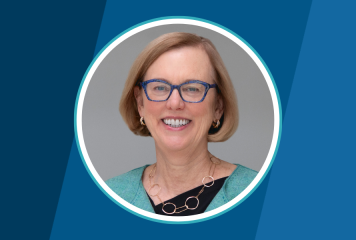South by Southwest (known as “South By” or “SXSW” by the “in crowd”) is not a place that I imagined I would be invited to speak. I always thought of it as a hip event where musicians and actors gathered to meet their fans and talk about their industry. But my team convinced me it was a global conference and a worthwhile place to talk about the work we are doing in medical misinformation. So, ABIM Director Dr. Vineet Arora, Public Good Projects CEO Joe Smyser and I had a panel discussion there in March. I learned a ton at the meeting, both from the audience who came to our panel and asked us questions, as well as from a few sessions I was fortunate enough to attend.
First, the other sessions: I went to one on “The Future of Content Moderation”. I wanted to learn how industry leaders were thinking about dealing with different kinds of issues on free-wheeling electronic platforms, everything from personal and physical threats, to incivility, to medical misinformation. I learned that there is an entire career track for “Trust and Safety Officers”, people who work to assure that online spaces are safe and welcoming places. I learned about real overlaps between content moderation and cybersecurity, I learned about the potential (and the limits) of trying to do this work with AI, and how contested the work can be.
Our panel, “When Doctors Prescribe Misinformation”, focused on the dangers of false medical information influencing the public’s health decisions. Joe talked about his organization’s efforts to monitor medical misinformation on social media platforms, to develop counter-messaging that can be shared with public health authorities and medical leaders, and, when the misinformation is truly dangerous, to reach out to platforms. He noted that health care doesn’t have a “Red Phone” – the people he talks to are the same ones who answer calls from the FBI about child trafficking or Homeland Security about domestic terrorism – they don’t have to take his call or address his concerns. Joe believes those agencies – of course – had a “Red Phone,” which prioritized those calls.
However, during the Q&A, a Trust and Safety Officer told us that the government agencies don’t have a “Red Phone” either, that the platforms were under no obligation to respond to anyone unless they had a court order. He made a plea for medical voices to unite against misinformation and to work with those urging government to create accountability structures for platforms through lobbying and regulation. For me, that was a mind-expanding moment.
We were also asked how to enhance the visibility of physicians who are providing good, reliable information on social media and use this information as a catalyst for real policy changes. ABIM is working on ways to amplify diplomate voices on social media, and we are doing so in concert with other medical organizations; we are strongest when medical organizations stand together.
This work is really challenging, and as I reflect on my time at SXSW and the comments and questions from really thoughtful and dedicated people who attended our session, I’m further convinced that it is going to take an “all of society” approach to keep our society safe from rampant misinformation of all kinds.

To watch the full recording of the SXSW session, click here.


